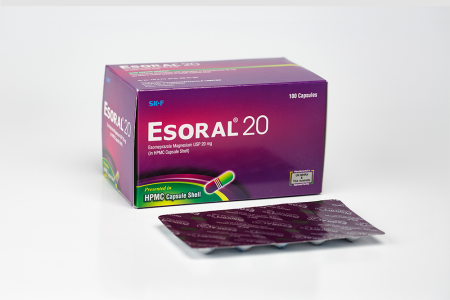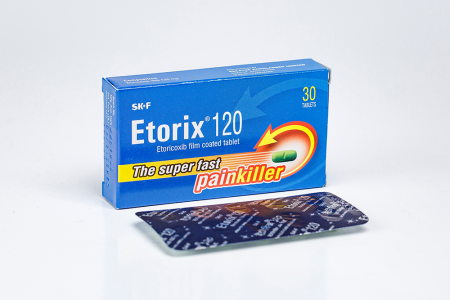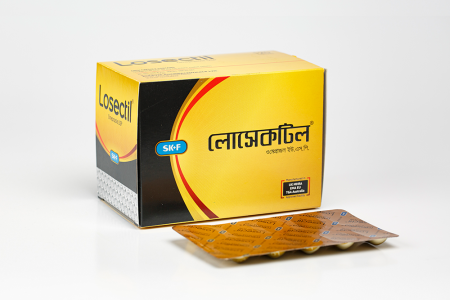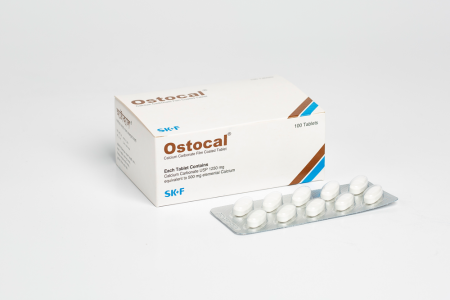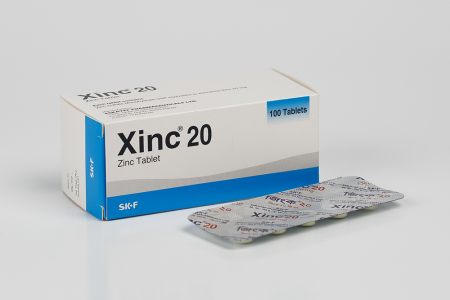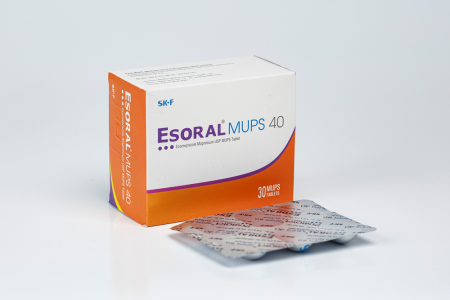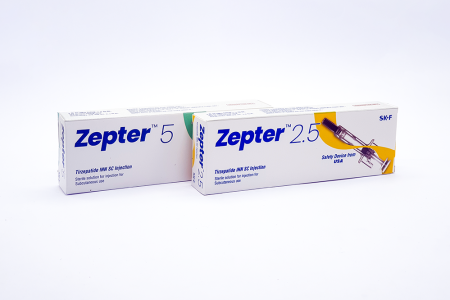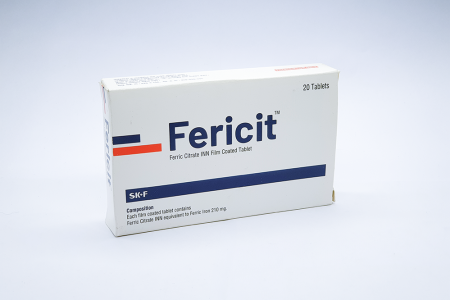
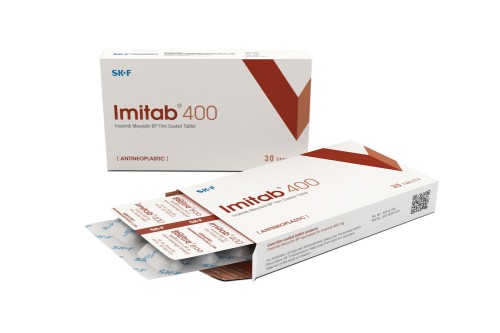
Imitab
Generic Name
Imatinib Mesylate
Therapeutic Class
Targeted Cancer Therapy, Tyrosine Kinase Inhibitor
DESCRIPTION
Imitab® is a preparation of Imatinib. Imatinib mesylate is a protein-tyrosine kinase inhibitor that inhibits the bcr-abl tyrosine kinase, the constitutive abnormal tyrosine kinase created by the Philadelphia chromosome abnormality in CML.Imatinib inhibits proliferation and induces apoptosis in bcr-abl positive cell lines as well as fresh leukemic cells from Philadelphia chromosome positive chronic myeloid leukemia. Imatinib inhibits colony formation in assays using ex vivo peripheral blood and bone marrow samples from CML patients. In vivo, Imatinib inhibits tumor growth of bcr-abl transfected murine myeloid cells as well as bcr-abl positive leukemia lines derived from CML patients in blast crisis. Imatinib is also an inhibitor of the receptor tyrosine kinases for platelet-derived growth factor (PDGF) and stem cell factor (SCF), c-kit, and inhibits PDGF- and SCF-mediated cellular events. In vitro, Imatinib inhibits proliferation and induces apoptosis in GIST cells, which express an activating c-kit mutation.
PHARMACOKINETICS
The pharmacokinetics of Imatinib have been evaluated in studies in healthy subjects and in population pharmacokinetic studies in over 900 patients. The pharmacokinetics of Imatinib are similar in CML and GIST patients. Imatinib is well absorbed after oral administration with Cmax achieved within 2-4 hours post-dose. Mean absolute bioavailability is 98%. Following oral administration in healthy volunteers, the elimination half-lives of Imatinib and its major active metabolite, the N-demethyl derivative (CGP74588), are approximately 18 and 40 hours, respectively. Mean Imatinib AUC increases proportionally with increasing doses ranging from 25 mg-1,000 mg. There is no significant change in the pharmacokinetics of Imatinib on repeated dosing, and accumulation is 1.5- to 2.5-fold at steady state when Imatinib is dosed once daily. At clinically relevant concentrations of Imatinib, binding to plasma proteins in in vitro experiments is approximately 95%, mostly to albumin and α1-acid glycoprotein.
CYP3A4 is the major enzyme responsible for metabolism of Imatinib. Other cytochrome P450 enzymes, such as CYP1A2, CYP2D6, CYP2C9, and CYP2C19, play a minor role in its metabolism. The main circulating active metabolite in humans is the N-demethylated piperazine derivative, formed predominantly by CYP3A4. It shows in vitro potency similar to the parent Imatinib. The plasma AUC for this metabolite is about 15% of the AUC for Imatinib. The plasma protein binding of N-demethylated metabolite CGP74588 is similar to that of the parent compound. Human liver microsome studies demonstrated that Imatinib is a potent competitive inhibitor of CYP2C9, CYP2D6, and CYP3A4/5 with Ki values of 27, 7.5 and 8 μM, respectively.
Imatinib elimination is predominately in the feces, mostly as metabolites. Based on the recovery of compound(s) after an oral 14c-labeled dose of imatinib, approximately 81% of the dose was eliminated within 7 days, in feces (68% of dose) and urine (13% of dose). Unchanged Imatinib accounted for 25% of the dose (5% urine, 20% feces), the remainder being metabolites.
INDICATIONS
• Newly diagnosed adult patients with Philadelphia chromosome positive chronic myeloid leukemia (Ph+ CML) in chronic phase. Follow-up is limited to 5 years
• Patients with Philadelphia chromosome positive chronic myeloid leukemia (Ph+ CML) in blast crisis (BC), accelerated phase (AP), or in chronic phase (CP) after failure of interferon-alpha therapy.
• Pediatric patients with Ph+ CML in chronic phase who are newly diagnosed or whose disease has recurred after stem cell transplant or who are resistant to interferon-alpha therapy. There are no controlled trials in pediatric patients demonstrating a clinical benefit, such as improvement in disease-related symptoms or increased survival.
• Adult patients with relapsed or refractory Philadelphia chromosome positive acute lymphoblastic leukemia (Ph+ ALL).
• Adult patients with myelodysplastic/ myeloproliferative diseases (MDS/MPD) associated with PDGFR (platelet-derived growth factor receptor) gene re-arrangements.
• Adult patients with aggressive systemic mastocytosis (ASM) without the D816V c-Kit mutation or with c-Kit mutational status unknown.
• Adult patients with hypereosinophilic syndrome (HES) and/or chronic eosinophilic leukemia (CEL) who have the FIP1L1-PDGFRα fusion kinase (mutational analysis or FISH demonstration of CHIC2 allele deletion) and for patients with HES and/or CEL who are FIP1L1-PDGFRα fusion kinase negative or unknown.
•Adult patients with unresectable, recurrent and/or metastatic dermatofibrosarcoma protuberans (DFSP).
• Patients with Kit (CD117) positive unresectable and/or metastatic malignant gastrointestinal stromal tumors (GIST)
DOSAGE AND ADMINISTRATION
• Adults with Ph+ CML CP : 400 mg/day
• Adults with Ph+ CML AP or BC : 600 mg/day
• Pediatrics with Ph+ CML : 340 mg/m2/day or 260 mg/m2/day
• Adults with Ph+ ALL : 600 mg/day
• Adults with MDS/MPD : 400 mg/day
• Adults with ASM : 100 mg/day or 400 mg/day
• Adults with HES/CEL : 100 mg/day or 400 mg/day
• Adults with DFSP : 800 mg/day
• Adults with GIST : 400 mg/day
• Patients with mild to moderate hepatic impairment: 400 mg/day • Patients with severe hepatic impairment : 300 mg/day
All doses of Imitab should be taken with a meal and a large glass of water. Doses of 400 mg or 600 mg should be administered once daily, whereas a dose of 800 mg should be administered as 400 mg twice a day. Imitab can be dissolved in water or apple juice for patients having difficulty swallowing. Daily dosing of 800 mg and above should be accomplished using the 400 mg tablet to reduce exposure to iron.
CONTRAINDICATIONS
None
SIDE EFFECTS
• Edema
• Nausea, vomiting, diarrhea • Muscle cramps
• Musculoskeletal pain
• Rash
• Fatigue
• Abdominal pain
OVERDOSE
Experience with doses greater than 800 mg is limited. Isolated cases of Imatinib overdose have been reported. In the event of overdose, the patient should be observed and appropriate supportive treatment given. A patient with myeloid blast crisis experienced Grade 1 elevations of serum creatinine, Grade 2 ascites and elevated liver transaminase levels, and Grade 3 elevations of bilirubin after inadvertently taking 1,200 mg of Imatinib daily for 6 days. Therapy was temporarily interrupted and complete reversal of all abnormalities occurred within 1 week. Treatment was resumed at a dose of 400 mg daily without recurrence of adverse reactions. Another patient developed severe muscle cramps after taking 1,600 mg of Imatinib daily for 6 days. Complete resolution of muscle cramps occurred following interruption of therapy and treatment was subsequently resumed. Another patient that was prescribed 400 mg daily, took 800 mg of Imatinib on Day 1 and 1,200 mg on Day 2. Therapy was interrupted, no adverse reactions occurred and the patient resumed therapy.
WARNING AND PRECAUTIONS
• Fetal harm can occur when administered to a pregnant woman. Women should be apprised of the potential harm to the fetus.
• Edema and severe fluid retention have occurred. Weigh patients regularly and manage unexpected rapid weight gain by drug interruption and diuretics.
• Cytopenias, particularly anemia, neutropenia, and thrombocytopenia, have occurred. Manage with dose reduction or dose interruption and in rare cases discontinuation of treatment. Perform complete blood counts weekly for the first month, biweekly for the second month, and periodically thereafter.
• Severe hepatotoxicity may occur. Assess liver function before initiation of treatment and monthly thereafter or as clinically indicated. Monitor liver function when combined with chemotherapy known to be associated with liver dysfunction.
• Severe congestive heart failure and left ventricular dysfunction have been reported, particularly in patients with comorbidities and risk factors. Patients with cardiac disease or risk factors for cardiac failure should be monitored and treated.
• Grade 3/4 hemorrhage has been reported in clinical studies in patients with newly diagnosed CML and with GIST. GI tumor sites may be the source of GI bleeds in GIST .
• Gastrointestinal perforations, some fatal, have been reported .
• Cardiogenic shock/left ventricular dysfunction has been associated with the initiation of Imitab in patients with conditions associated with high eosinophil levels (e.g., HES, MDS/MPD and ASM) .
• Bullous dermatologic reactions (e.g., erythema multiforme and Stevens-Johnson syndrome) have been reported with the use of Imitab. •Hypothyroidism has been reported in thyroidectomy patients
undergoing levothyroxine replacement. Closely monitor TSH levels in such patients.
• Consider potential toxicities, specifically, liver, kidney, and cardiac toxicity, and immunosuppression from long-term use .
DRUG INTERACTIONS
Patients should be advised not to take any other medications, including over-the-counter medications such as acetaminophen or herbal products without talking to their doctor or pharmacist first. Examples of other medications that should not be taken with Imatinib are warfarin, erythromycin, and phenytoin. Patients should also be advised to tell their doctor if they are taking or plan to take iron supplements. Patients should also avoid grapefruit juice and other foods known to inhibit CYP3A4 while taking Imatinib.
USE IN PREGNANCY AND LACTATION
Pregnancy Category D. There are no adequate and well-controlled studies with Imatinib in pregnant women. Women should be advised not to become pregnant when taking Imatinib. If this drug is used during pregnancy, or if the patient becomes pregnant while taking this drug, the patient should be apprised of the potential hazard to the fetus.
It is not known whether Imatinib or its metabolites are excreted in human milk. Because many drugs are excreted in human milk and because of the potential for serious adverse reactions in nursing infants from Imatinib, a decision should be made whether to discontinue nursing or to discontinue the drug, taking into account the importance of the drug to the mother.
PHARMACEUTICAL PRECAUTION
Store below 30 °C temperature and away from light and wet place. Keep out of reach of children.
PACKAGING
Imitab® 100 Tablet : Box containing 3 strips of 10 tablets each. Each film coated tablet contains Imatinib Mesylate BP equivalent to Imatinib 100 mg.
Imitab® 400 Tablet : Box containing 3 strips of 10 tablets each. Each film coated tablet contains Imatinib Mesylate BP equivalent to Imatinib 400 mg.



